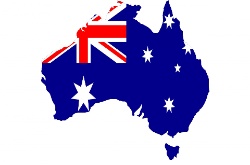Palestinians in Grip of Humanitarian Crisis
Palestinians in Grip of Humanitarian Crisis, Swiss Charity Warns
Conditions Will Deteriorate with Building of
Israeli Roadblocks, Apartheid Wall
Hundreds of thousands of Palestinians under Israeli occupation since 1967 are in a grip of humanitarian crisis despite a United States-backed peace plan, a Swiss charity warned, while UNRWA noted the Psychological Impact on children.
Nathalie Chuard of Terre des Hommes, which is currently carrying out four projects in the West Bank and Gaza Strip returned from a two-month trip to both areas and warned the situation has deteriorated since the declaration of the second Palestinian Intifada or uprising against the 36-year old Israeli occupation.
“Unemployment has risen during this time from 36 percent to 50 per cent,” Chuard told swissinfo.
The World Bank estimates that the number of people living below the poverty line has doubled since 1998, and that between 60 and 70 per cent of Palestinians are now living on less than two dollars a day.
Chuard said many Palestinians cannot afford food since prices are set at Israeli levels. She added that 50 per cent of the population is dependent on food aid, according to the UN agency for Palestinian refugees (UNRWA).
Chuard also stressed that conditions will deteriorate with the building of the Israeli Apartheid segregation wall.
“The wall makes the gulf between the Israelis and Palestinians even wider… [I fear] there will never be peace,” she said, adding that the Palestinians feel trapped in a prison by the wall.
Another problem is exacerbated by Israeli roadblocks, said Chuard, which means food and medication often cannot get through to Palestinian areas, which also suffer from a shortage of trained personnel.
Terre des Hommes, which has been active in the Occupied Territories since 1973, is working in hospitals in the West Bank and Gaza as well as helping a medical team that visits villages.
One of the team’s key tasks is to offer mothers advice about nutrition, family planning and hygiene.
In centres in Gaza, Hebron and Jenin, the charity concentrates primarily on feeding undernourished children, especially those from the poorest sectors of society.
Terre des Hommes estimates that over 20 per cent of children are acutely or chronically undernourished.
Psychological Impact
Since the beginning of the year, Terre des Hommes has also been involved in a project offering psychological and social support to mothers, children and families.
“Because the everyday life of Palestinian mothers is very hard and stressful, it often happens that they are no longer psychologically able to properly take care of their children,” Chuard told Swiss info.
The UN agency for Palestinian refugees, known as UNRWA said a survey conducted in five West Bank refugee camps shows that Palestinian children are suffering from stress and depression.
UNRWA official Matthias Burchard said medical staff in West Bank refugee camps began compiling statistics for the survey some months ago, when doctors noticed a big increase in the number of parents bringing their children to health centers for help.
He says the parents reported often alarming behavior patterns in their children. Some as old as nine or 10 were wetting their beds at night, and their parents could not understand why.
“You have what is called by the doctors post-traumatic stress disorders, which come up in sleeplessness, in aggression, restlessness, depression and all different signs of stress, fear paranoia, all these things, which essentially have made life of children miserable, and require professional help,” he explained.
Burchard says interviews with parents and teachers show they, too, are under considerable stress, and need help.
“The doctors clearly state their fear that the coming generation will want to destroy everything, because it will have lost everything,” said Burchard. “And, therefore, there is a great need to help and to help now, and to help for some years to come. This is not a quick fix problem. This will require years of counseling and treatment.”
UNRWA cares for about four million Palestinian refugees in the Middle East. Burchard estimates it needs $3.6 million to provide appropriate psychological counseling to the Palestinians, until the end of the year.


 Global Forest Coalition: Global NGOs Call On International Maritime Org To Reject Biofuels And Commit To Truly Clean Energy
Global Forest Coalition: Global NGOs Call On International Maritime Org To Reject Biofuels And Commit To Truly Clean Energy Australian Catholic University: Principals Navigate Growing Challenges As Anxiety, Depression Increase And Violence, Workloads Intensify
Australian Catholic University: Principals Navigate Growing Challenges As Anxiety, Depression Increase And Violence, Workloads Intensify SNAP: Survivors Deliver Vos Estis Lux Mundi Complaints Against Six Cardinals To Vatican Secretary Of State Parolin
SNAP: Survivors Deliver Vos Estis Lux Mundi Complaints Against Six Cardinals To Vatican Secretary Of State Parolin UNICEF Aotearoa NZ: Myanmar Earthquake A Further Blow For Millions Of Children
UNICEF Aotearoa NZ: Myanmar Earthquake A Further Blow For Millions Of Children Greenpeace: 'Desperate And Deceitful'- Deep Sea Mining Frontrunner Turns Its Back On Pacific Nations
Greenpeace: 'Desperate And Deceitful'- Deep Sea Mining Frontrunner Turns Its Back On Pacific Nations 350.org: Australia Announces Election Dates, Pacific Islanders Rally To Vote For Climate
350.org: Australia Announces Election Dates, Pacific Islanders Rally To Vote For Climate